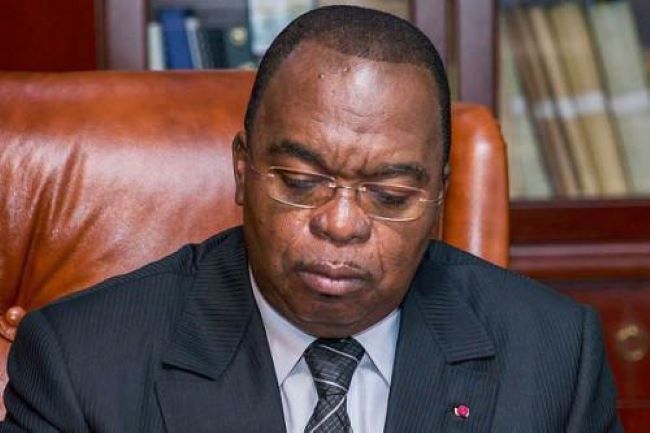Biya regime uncovers $1 billion in unpaid domestic debts after 4-year audit
The Cameroonian government has acknowledged domestic debt arrears totaling CFA671.7 billion ($1.1 billion), owed by various ministries, public institutions, and decentralized local authorities. These arrears, claimed by various entities and service providers for the period from 2000 to 2019, were revealed through a comprehensive audit initiated by the Ministry of Finance in late 2020.
Finance Minister Louis Paul Motazé, in an official communiqué dated August 16, 2024, detailed the distribution of these arrears. The central administration is responsible for the largest portion, owing CFA461.5 billion, while public institutions and enterprises owe CFA194.4 billion. Decentralized local authorities are accountable for a smaller amount, owing CFA15.8 billion.
In terms of debt types, salary arrears are the highest, amounting to CFA303.3 billion. This is followed by tax and customs debts at CFA215.8 billion, and commercial debts at CFA121.6 billion. Academic and rental debts are still being refined, but are provisionally estimated at CFA15.6 billion and just over CFA9 billion, respectively. Social debts and compensation arrears stand at CFA5.6 billion and CFA410 million.
Minister Motazé outlined the government’s plan for addressing these debts. The academic, rental, social, and compensation debts will be covered in the 2024 state budget. The salary arrears will be cleared over two years starting in 2024, with the exception of teacher salaries, which will be fully paid by the end of 2024. The commercial debts will be settled over a period of three years, starting in 2024, with a shared responsibility between the state and the debtor entities. The government will also take on the entire tax debt, to be paid off over seven years beginning in the 2024 budget year. The Minister of Finance will issue specific instructions detailing the budgetary and accounting procedures for this debt settlement process, as well as the relevant payment channels.
The audit operation, which was launched in late 2020, aimed to address the growing spiral of debt that posed a significant risk to public finance stability, and to restore the credibility of the state’s financial commitments. However, the implementation of this operation, which is part of Cameroon’s economic and financial program with the IMF, faced several challenges. In a communiqué published in late 2021, Minister Motazé revealed that the collection of arrears data from various public administrations and entities had not met expectations. The volume of files received was low, and there were numerous requests for direct payment of unpaid debts that should have been included in the ongoing debt audit.
Minister Motazé had set a deadline of December 31, 2021, for the submission of the required files to the Directorate General of Budget (DGB) within the Ministry of Finance. Although the official submission period closed, an additional month was granted in June 2022 for any late submissions, after which no further debt claims would be accepted for this operation. This extension highlighted the difficulties encountered during the audit process. A source within the Ministry of Finance noted that many administrators were slow to submit their files, perhaps fearing that the audit might uncover irregularities.
Despite these obstacles, ARC Audit Consulting, the firm contracted in 2021 to conduct the audit, delivered its first report in October 2022. This report led to the rejection of claims from 5,656 service providers for reasons such as duplication, prior payment, double employment, partial payment, or claims outside the audit period. The rejected claims were not disclosed in terms of amount, but a list published by Minister Motazé on October 6, 2022, detailed these reasons, including cases where the same file contained different title numbers, or where claims were outside the audit’s reference period.
Minister Motazé also warned against fraudulent attempts to claim fictitious debts from the state. Cases of document falsification had already been detected, with those responsible currently under arrest. Alongside the list of “definitive rejections,” a separate list of 32,359 service providers whose claims were deemed “auditable” was also published.
This list was probably used to determine the final amount of CFA671.7 billion in recognized payment arrears for the audited period from 2000 to 2019. However, this amount could still change, particularly downward. In his communiqué of August 16, 2024, Minister Motazé indicated that the Ministry of Finance reserves the right to cancel any validated debt if new evidence shows that the claim is unfounded. The supposed beneficiary of such a claim could also face prosecution for attempting to embezzle public funds.
Source: Business in Cameroon




